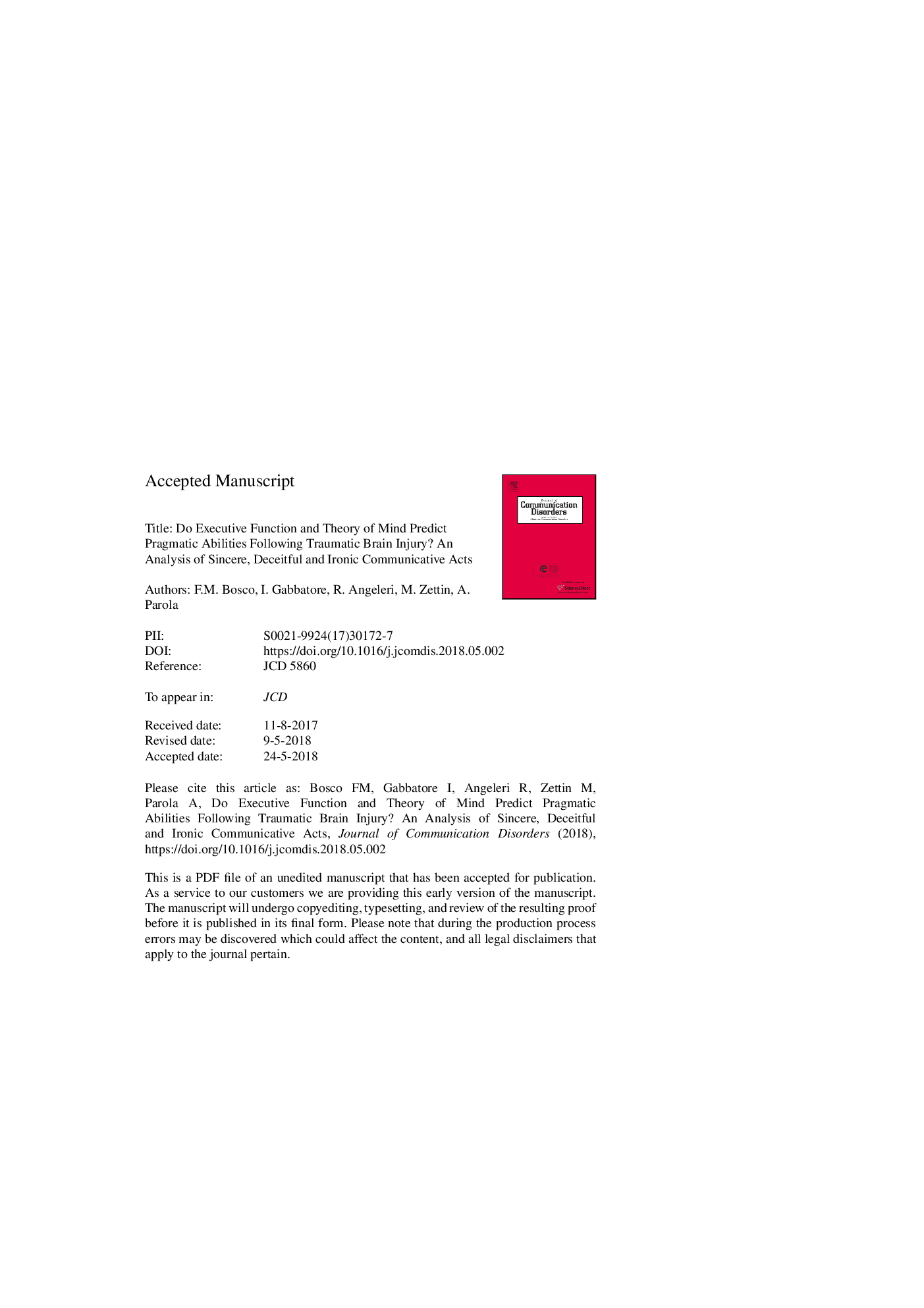| Article ID | Journal | Published Year | Pages | File Type |
|---|---|---|---|---|
| 9952950 | Journal of Communication Disorders | 2018 | 53 Pages |
Abstract
The results showed that, when compared to healthy individuals, participants with TBI performed poorly overall in the comprehension and production of all the pragmatic phenomena investigated, (i.e., sincere, deceitful and ironic communicative acts), and they also exhibited impaired performance at the level of all the cognitive functions examined. Individuals with TBI also showed a decreasing trend in performance in dealing with sincere, deceitful and ironic communicative acts, on both the comprehension and production subscales of the linguistic and extralinguistic scales. Furthermore, a hierarchical regression analysis revealed that - in patients with TBI but not in the controls - EF had a significant effect on the comprehension of linguistic and extralinguistic irony only, while the percentage of explained variance increased with the inclusion of theory of mind. Indeed, ToM had a significant role in determining patients' performance in the extralinguistic production of sincere and deceitful communicative acts, linguistic and extralinguistic comprehension of deceit and the linguistic production of irony. However, with regard to the performance of patients with TBI in the various pragmatic tasks investigated, (i.e., sincere, deceitful and ironic communicative acts), EF was able to explain the pattern of patients' scores in the linguistic and extralinguistic comprehension but not in production ability. Furthermore, ToM seemed not to be able to explain the decreasing trend in the performance of patients in managing the various kinds of communicative acts investigated.
Keywords
Related Topics
Life Sciences
Neuroscience
Cognitive Neuroscience
Authors
F.M. Bosco, I. Gabbatore, R. Angeleri, M. Zettin, A. Parola,
